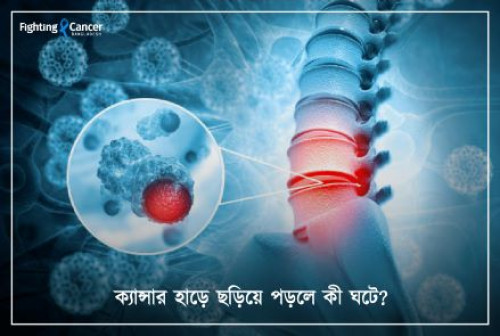
Did you know that when cancer spreads to the bones, it's called bone metastasis? Bone metastasis usually occurs in patients with advanced-level cancer.
The cancers that commonly spread to the bones include breast, kidney, lung, prostate, thyroid, bladder, ovary, and melanoma.
The most common sites for bone metastases are the
- spine,
- ribs,
- hips (pelvis),
- upper arm bone (humerus),
- upper leg bone (femur),
- sternum,
- skull.
Bones continuously revitalize themselves by breaking down and regenerating new bone tissues. This process continues throughout our life. This involves two cycles:
- One is osteoblasts. It helps to grow new bones, reshapes with age, and helps to heal when bones are damaged or broken.
- Another one is osteoclasts. It helps to dissolve old or broken bones. This process creates a space for osteoblasts to regenerate bones.
When cancer spreads to the bones, the natural activities of bones are hampered and the following problems may happen:
- Bone Pain: This is the most common symptom of bone metastasis. It worsens at night or while resting and may come and go, but it becomes severe with time.
- Broken bones: Bone metastasis usually weakens the bones and increases the risk of fractures. The long bones of the body like the spine, legs, and arms are more prone to fracture.
- Hypercalcemia: Bone metastases cause imbalances between bone formation and bone loss, resulting in the release of a high amount of calcium in the bloodstream, causing nausea, vomiting, confusion, loss of appetite, and constipation.
- Limited movement and changes in daily life activities: Bone metastasis causes pain, bone weakness, and joint dysfunction, which may result in possible stiffness. These difficulties may cause limited movement and greatly affect daily activities.
- Neurological Symptoms: When cancer metastasizes to the spine, it affects the spinal cord and compresses it. Due to this compression, numbness or weakness in the legs, numbness in the belly, back pain, and difficulty in urinating or evacuating may occur.

